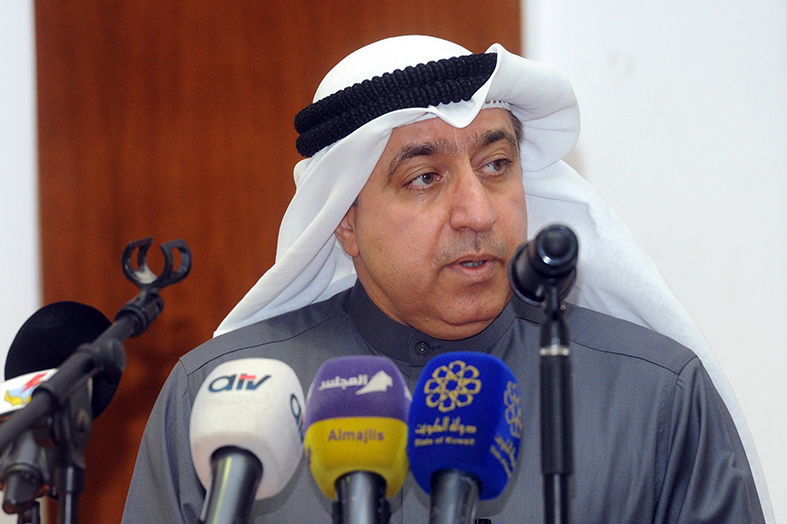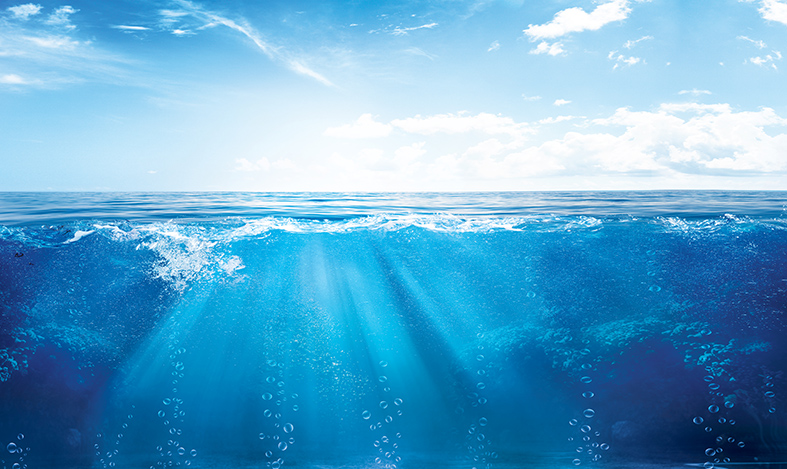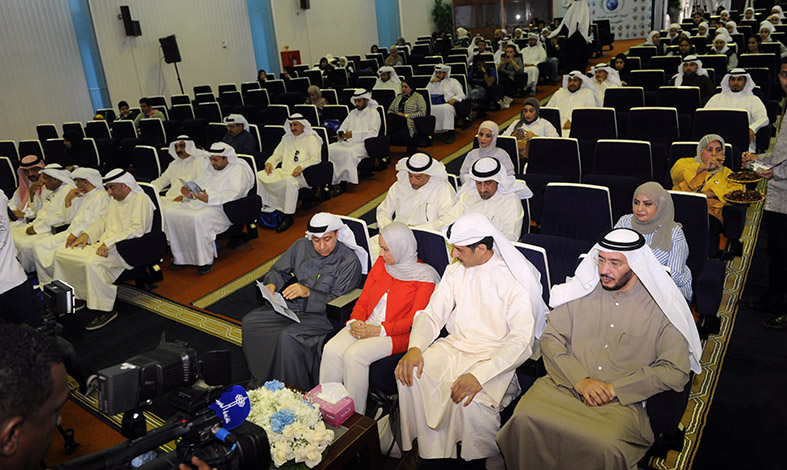Al-Rashidi: Challenges facing Arab countries in water resources are intricate
Al-Awadhi: the last oil spill was contained within a record time
Water is the secret of life on earth, and life cannot go on without it. It accounts for 71 percent of the planet. We use water in various activities from industry and agriculture, as well as in clean energy generation. The world has recently begun to suffer from the scarcity of potable water, which necessitates measures to mitigate the problem. On March 3 each year, the Arab World celebrates Arab Water Day. On this occasion, the Ministry of Electricity and Water organized a ceremony entitled "Interconnectivity between Water, Food and Energy Sustains Life", in which a number of presentations were delivered, where KOC had its share.
In his speech on behalf of the Minister of Oil & Electricity & Water Eng. Bakheet Al-Rashidi, at the start of the event, Undersecretary of the Ministry of Electricity & Water, Eng. Mohammad Bushehri, stressed the need for cooperation and coordination between Arab countries to adopt strategies and solutions that guarantee sustainability of growth and development. “Challenges facing Arab countries in water resources are several and intricate in the face of climate change, drought, rapid population growth and economic development”, he said. Kuwait participation in Arab Ministerial Council for Water under the umbrella of the Arab League stems from a sense of responsibility to increase water awareness. “Kuwait supports Arab efforts to face water resources challenges through its support for everything that would provide water resources and conserve them and showcasing successful experiences in water conservation that have limited waste and depletion of water”, he added.

KOC Participation
For its part, KOC contributed in the event with two presentations, one by head of Marine Oil Spills Section, Marine Operations Group, Captain Ahmad Al-Awadhi. In his presentation, Al-Awadhi reviewed the efforts exerted by Maritime Operations Group in combating pollution and the role assigned to Marine Oil Spill Management Team. He pointed out that the team was established in 2015 at the request of KPC and was supported by senior management in KOC, after the integration of the Vetting Unit. After reviewing the organizational structure of the team and the fleet the team uses to deal with oil spills, Al-Awadhi explained the team's mission of raising the level of its efficiency through training and education with the help of continuous training programs throughout the year. The aim of the training is to establish a team capable of addressing any future challenges, he said. The team also seeks to preserve the cleanliness of the sea and provide a healthy marine environment.
Distinguished Efforts & Satisfactory Outcomes
Al-Awadhi cited the efforts of the Marine Oil Spill Management Team in combating pollution in the unknown oil spill incident in Mina Al-Zur. The team has started working in the area for fear of the arrival of pollution to the desalination plants and the South and North Electricity Plants, which would threaten these sources on which life in Kuwait depends largely.
The team worked over eight days from 10 to 18 August 2017 to neutralize and eliminate contamination. The incident was contained within a record time and without any practical interference from any outside party, which is an accomplishment that goes to the credit of Marine Oil Spill Management Team. Therefore, top management in the oil sector were keen to honor the team such as Oil Minister Bakhit Al-Rashidi, KPC CEO Nizar Al-Adasani and KOC CEO Jamal Abdul Aziz Jaafar. He noted that some oil pollution incidents had occurred but were easily contained by the team. Al-Awadhi displayed pictures of the team's activities during that period.

Vetting of Ships
Al-Awadi spoke about the Vetting Unit of the team, which vets all vessels entering Kuwait and their compliance with environmental standards. Ships shall be vetted in terms of their type and their conformity with the approved international standards. Al-Awadhi pointed out that there are many cases where the entry of some ships to Kuwaiti ports was prevented based on the reports of the Vetting Unit, although it may have entered the ports of a number of Gulf countries. For example, the owner of the ship is sometimes asked to change some crew due to lack of experience. In other cases, the ship's captain and the chief engineer are tested for their competence to enter Kuwaiti ports. If a captain's experience does not exceed one year, the owner of the ship would be notified to replace him. Sometimes the entire crew is changed to be able to enter Kuwait. KPC always abide by the decision of the Vetting Unit regarding the validity of ships to enter Kuwait or not. Al Awadhi assured the audience that his team is doing its utmost to protect Kuwait's territorial waters from any environmental effects of foreign ships entering Kuwaiti ports.
Beyond 2020
With regard to the ongoing preparations for achieving post-2020 strategy aspirations, Al-Awadhi said that Oil Spill Management Team seeks to be an integral part of Marine Operations Group and to gain recognition at the global level and to be one of the major teams ready to deal with any oil spill. It also makes every effort to be recognized as the most efficient at the regional level with regard to oil spills. It is worth mentioning that KOC operates through several agreements and coordination and emergency plans, in addition to work plans developed specifically for the Company that suit the best practices in oil industry.

Vetting Unit
Vetting Unit has become a key component of the Marine Oil Spill Management Team. It works to ensure the quality and risk management of vessels entering KPC ports. Thus, marine quality assurance procedures have been adopted using the so-called Vessel Inspection Procedure. It should be noted here that vetting is a qualitative operation in quality and an assessment of the risks that a vessel may suffer. In 2010, KPC assigned Marine Operations Group the responsibility for ensuring the quality and management of marine risks to the corporation and its subsidiaries. Maritime transport and operations are the vital and sensitive link to ensure marine quality, which is, in turn, an integral part of the main supply chain of oil.